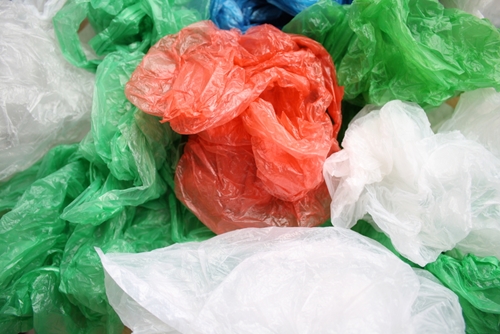
EU Moves To Reduce Plastic Bag Use Across 28 Countries
According to The Guardian, the average European Union citizen consumed 191 disposable bags last year. But lawmakers are hoping to change that with the introduction of a new plastic bag ban designed to reduce plastic bag use that will be imposed throughout the EU. The new plastic bag ban – a historic, collaborative move between 28 countries – will encourage the use of reusable bags and reduce the plastic bag use consumed per person.
The European Union – composed of Austria, Belgium, Bulgaria, Croatia, Republic of Cyprus, Czech Republic, Denmark, Estonia, Finland, France, Germany, Greece, Hungary, Ireland, Italy, Latvia, Lithuania, Luxembourg, Malta, Netherlands, Poland, Portugal, Romania, Slovakia, Slovenia, Spain, Sweden and the UK – agreed unanimously to implement the ban, which allows for some flexibility in terms of implementation.
“The significance of this package is enormous,” Gerben-Jan Gerbrandy, Dutch Liberal MEP, told the Guardian. “It is a huge victory for not only the European environment but also globally as most of these single-use bags end up in the world’s oceans and are one of the big causes of the ‘plastic soup’ phenomenon.”
Why reduce plastic bag use?
EU leaders agreed there are a number of reasons to disincentivise plastic bag use. Most commonly cited was the ‘plastic soup’ that EU members said have taken to clogging up the oceans.
The Pacific Ocean is now home to a vortex of tiny plastic particles that swirl throughout the ecosystem. While some may imagine the debris to be full-form plastic objects such as disposable bags, the bits of plastic that make up the vortex actually tend to be microscopic. This is because plastic doesn’t biodegrade the way other materials do – it simply breaks down into smaller and smaller particles over time.
These tiny bits of plastic are detrimental to the ocean ecosystem. Marine life swallow the debris, mistaking it for plankton and other natural food sources. This has long-term ramifications for the health of sea creatures and marine life, which are already experiencing vast problems with overfishing and ocean acidification.
It’s not just the oceans where plastic does damage, however. Its non-biodegradable properties affect landfills as well, taking up precious space. These bags are also ingested by land animals, and can be fatal if they get caught in these creatures’ digestive tracts.
Details of the EU ban
The new EU ban specifies that countries can exercise one of two options when it comes to reducing plastic bag use. They can either adopt mandatory pricing schemes by 2019, or take other measures to reduce average bag use per person to 90 by 2019 and 40 by 2025. This gives lawmakers some flexibility in terms of how they choose to reduce bag use in their own country.
There were some measures related to the ban that were not approved, however. Some lawmakers wanted to impose a complete ban on ‘oxodegradable bags’, a product that has been widely criticised by environmentalists due to its misleading name.
All in all, reactions to the new law have been largely positive. As stated, the measure was unanimously approved, and all countries agreed that the move to encourage use of reusable bags, rather than disposable ones, was a step forward.
“The agreement on new EU rules to reduce plastic bag use is a historic step towards tackling the pervasive problem of plastic waste and one that has strong popular support,” Margaret Auken, Green MEP, said. “Thankfully, the commission has recognised this and decided not to obstruct the European Parliament and Council in finalising this important legislation.”


